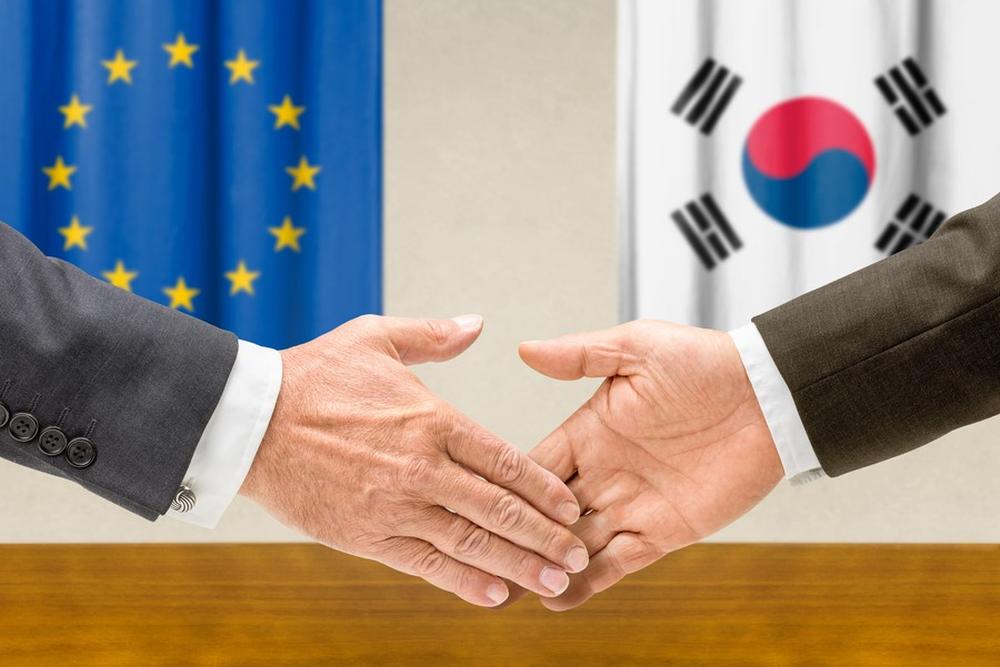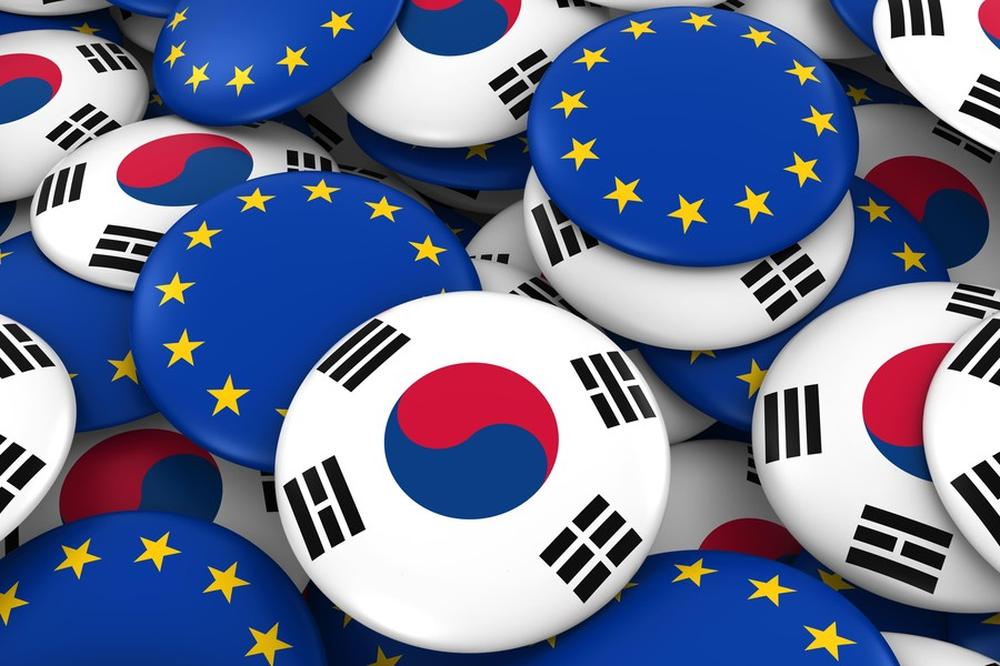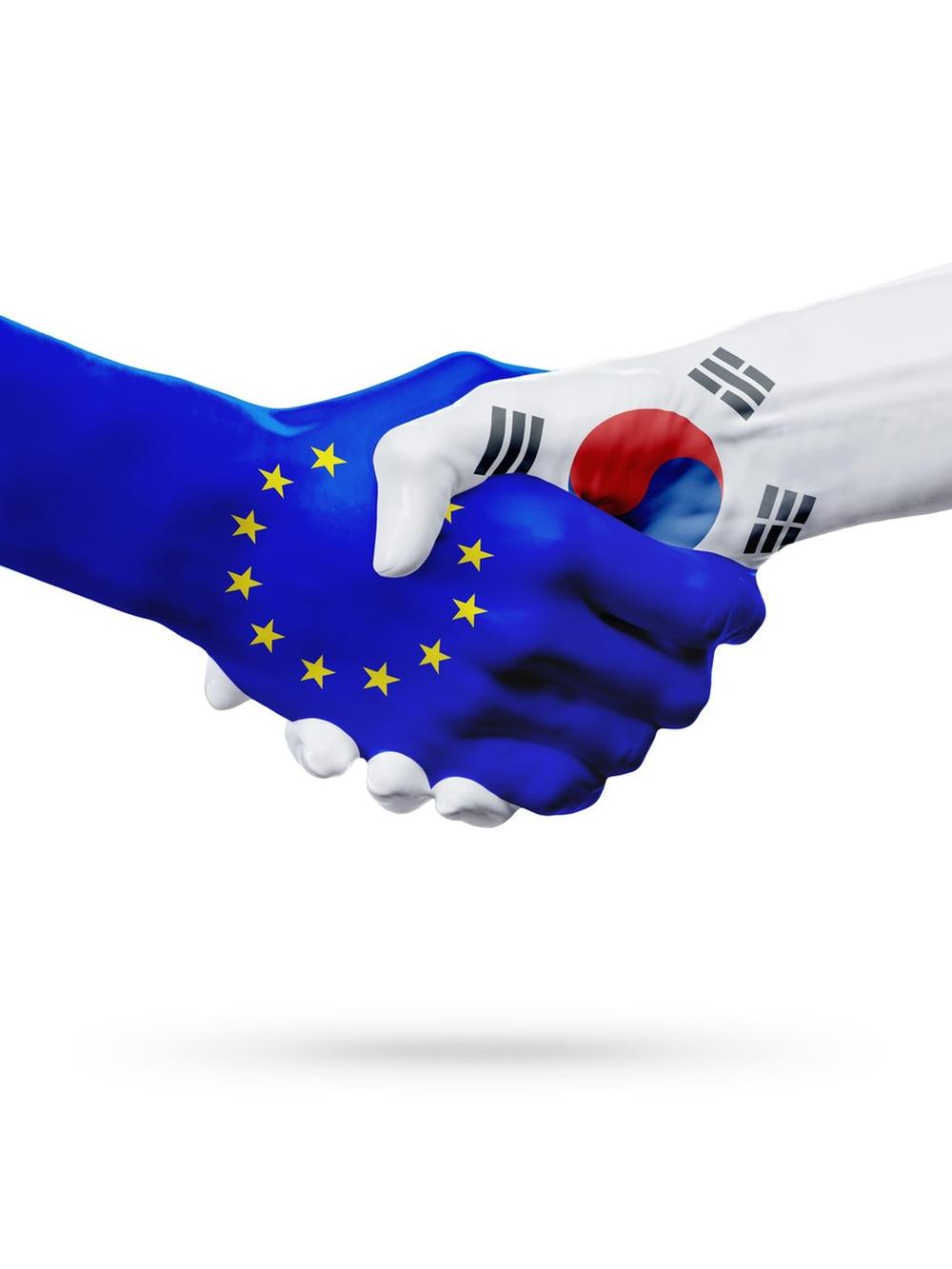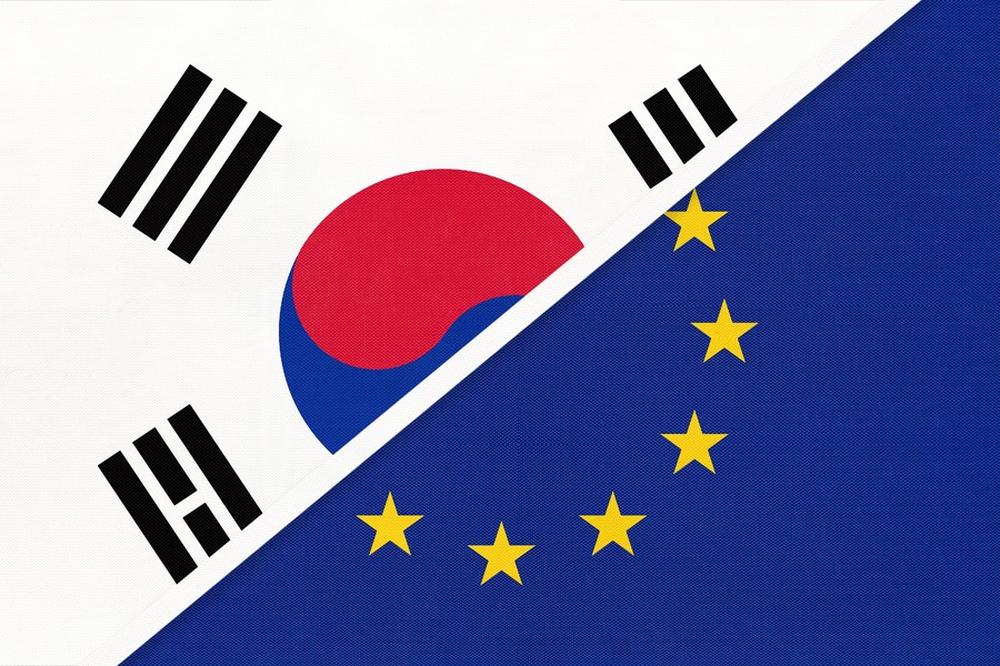- #Europe
- #Global Issues
- #South Korea

► There are plenty of reasons why the EU should be eager to take on a greater role on the Korean Peninsula. However, it seems likely that Europe’s role on the Korean Peninsula will be limited and complementary.
► Therefore, it will be difficult for Europe to become more than a peripheral actor. The inconvenient relationship between the EU and China will likely limit Europe’s role in Korean Peninsula affairs.
► While it is impossible for Europe to become the main player in the Korean Peninsula Peace Process, it will be more than possible for Europe to play a complementary role by sharing the burden with the United States, serving as an honest mediator, and sharing information with Korea.
► Therefore, with the understanding that Korea’s cooperative relationship with Europe will remain limited, Korea and Europe must come up with ways to maximize Europe’s diplomatic assets in order to maintain a channel of communication with North Korea and to induce change.
The Republic of Korea (Korea) and the European Union(EU) can be described as like-minded strategic partners that share the same international norms and universal values. Korea and the EU maintain strong trade relations and make investments based on their economic, political, and national security treaties such as the “Free Trade Agreement,” the “Framework Agreement for Trade and Cooperation between the Republic of Korea, on the one hand, and the European Community and its Member states, on the other hand” as well as the “Framework Agreement for the Participation of the Republic of Korea in European Union Crisis Management Operation.” The two partners also share experiences and technologies, and have expanded their people-to-people exchanges in various fields including climate change and energy, education and culture, international development cooperation, cybersecurity, peacekeeping operations, sustainable development, and response to the pandemic.
The EU is also on the same trajectory with Korea in terms of dealing with North Korea. Under the broader framework of “critical engagement,” the EU has remained critical towards North Korea’s human rights violations and WMD programs while leaving the door open to the possibility of humanitarian assistance and emphasizing the importance of dialogue to resolve the issue. The EU also wishes to have a greater voice on Korean Peninsula affairs.
There are plenty of reasons why the EU should be eager to take on a greater role on the Korean Peninsula. First, a practical and constructive role on the Korean Peninsula can help improve EU’s international status. Second, it can have a direct role in stabilizing the Northeast Asian region—a region in which the EU has tremendous economic interests. Third, by help resolving the North Korean nuclear issue, it can reduce threats to its national security in the form of nuclear non-proliferation. Fourth, it can help maintain the nuclear non-proliferation regime, which the EU helped establish in the 1990s.
However, it seems likely that Europe’s role on the Korean Peninsula will be limited and complementary. Much of this has to do with the EU’s limited capacity and lack of will, which draw sharp contrast to those of the United States. Europe does not have vital interests on the Korean Peninsula and domestic issues prevent its foreign policy capacity. Given the EU’s unique foreign policymaking structure, which gives great voice to its member states, it appears unlikely that the EU will mobilize significant resources to intervene in Korean Peninsula issues. Therefore, it will be difficult for Europe to become more than a peripheral actor. This is especially the case with EU-China relations experiencing difficulties as a result of intensifying US-China conflict. Stuck between the United States and China, Europe finds itself in an increasingly difficult position and unable to establish strategic autonomy.
Europe sees China as a systemic rival that threatens its strategic interests. (Economist, Jan. 9-15, 26). Its report on China, which was published in early 2019, identifies China as a serious threat. As witnessed during the implementation of the AUKUS pact, the United States and Europe(especially France) have clashed frequently over conflicting interests. However, it is likely that the United States and Europe will join hands in an effort to counter China. The refusal by the EU Congress to ratify the “EU-China Comprehensive Agreement on Investment,” which was agreed in late 2020, exemplifies today’s EU-China relations.
The inconvenient relationship between the EU and China will likely limit Europe’s role in Korean Peninsula affairs. Since Europe is one of the United States’ stronger partners, China will refuse to recognize Europe’s voice. Moreover, Europe’s inability to differentiate its North Korea policy from the United States will further hinder its ability to secure an independent role when it comes to the Korean Peninsula.
Despite this, Korea and Europe must maintain close and cooperative relations. While it is impossible for Europe to become the main player in the Korean Peninsula Peace Process, it will be more than possible for Europe to play a complementary role by sharing the burden with the United States, serving as an honest mediator, and sharing information with Korea.,
Europe, as a single normative power, has played a critical role within the UN resolutions regime that targets North Korea’s human rights violations. While the United States tabled bills that target North Korea’s human rights violations in the past, it has come to focus more on economic sanctions in the aftermath of North Korea’s nuclear test in 2006. Europe, on the other hand, has taken on a greater role in the drafting and implementation of North Korea human rights resolutions. While it is difficult to know whether this arrangement was agreed upon by the United States and Europe, it seems clear that this approach has been effective.
Moreover, Europe’s value in Korean Peninsula issues can be found in the fact that it does not have vital interests in Korea. This qualifies Europe to become an honest mediator. The fact that the EU has no significant interest in North Korea’s nuclear issue and, therefore, is not a principal player can help convince North Korea and other regional players that Europe can serve as a mediator, which can prove to be an important asset in resolving issues on the Korean Peninsula.
Despite the implementation of a stringent sanctions regime, EU member states have maintained a channel of dialogue with North Korea. Excluding France and Estonia, 25 EU members normalized relations with North Korea and six(seven before Brexit) among them have embassies in Pyongyang. Up until 2015, EU has had intermittent political dialogue with North Korea and has provided humanitarian assistance—albeit small—to the North. There are also a number of European NGOs that continue activities related to North Korea. It is possible that Europe has accumulated significant amount of data on North Korea. If Europe decides to share this information with Korea, it could serve as an important asset in preparing for a new future on the Korean Peninsula.
Even though it is important for Europe to participate in Korean Peninsula affairs, we must moderate our expectations about Europe’s contributions. In particular, any hope that Europe could serve as an alternative to the United States or that Korea and the EU could in some way induce the United States to alter its position—one that is more favorable to Korea—are lofty and unrealistic expectations.
North Korea’s nuclear problem is certainly a security threat to Europe because of the possibility of nuclear proliferation, which goes against the EU’s value on multilateralism. Since the problem can also destabilize the regional environment, it could negatively influence Europe’s economic profits. For these reasons, Europe could actively look to participate in the North Korea nuclear issue. However, it will not do so if it goes against the United States. If the problem involved the Middle East or Eastern Europe—regions much closer geographically and strategically—Europe may be willing to go against the United States. Europe’s strong disagreements with President Bush over the Iraqi War as well as with President Trump over the Iran nuclear deal serve as great examples. Whether Europe will do the same with regard to a country with little European interests remains questionable. Europe will either agree, remain silent, or resist only symbolically with regard to the United States’ approach to North Korea.
Therefore, with the understanding that Korea’s cooperative relationship with Europe will remain limited, Korea and Europe must come up with ways to maximize Europe’s diplomatic assets in order to maintain a channel of communication with North Korea and to induce change.
Jinwoo Choi is a professor of political science and diplomacy at Hanyang University and director of the Institute for Peace at Hanyang University. He holds a doctorate in European political research at the University of Washington, and has since published more than 50 papers. After graduating from the Department of Political Science and Diplomacy at Yonsei University, he earned his Master's degree from the Yonsei University Graduate School of Political Science and this PhD from the Department of Political Science at the University of Washington. He was the President of the Korean Political Science Association and President of the Korean Society of Contemporary European Studies before joining Hanyang University.


